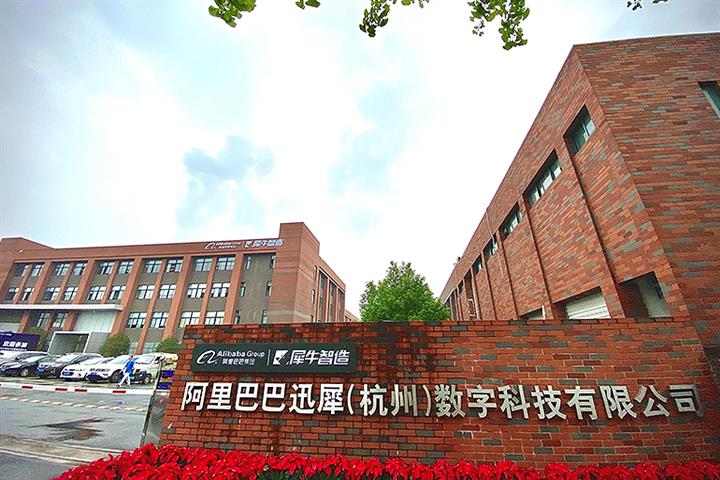 Alibaba Opens Smart Factory For Fully Customized, Demand-Driven Production
Alibaba Opens Smart Factory For Fully Customized, Demand-Driven Production(Yicai Global) Sept. 16 -- Alibaba Group Holding has started a smart factory as part of its New Manufacturing initiative which, by leveraging the e-commerce giant’s considerable cloud computing and Internet of Things resources, is able to greatly increase the efficiency and level of customization of small and medium-sized businesses.
The Xunxi Digital Factory allows for fully customized, demand-driven production, Hangzhou-based Alibaba said in a press release today. It gives smaller manufacturers in particular the chance to increase their share in China’s CNY30 trillion (USD4 trillion) manufacturing market through being able to respond better and quicker to customers’ changing needs, it added.
"Data is the core of New Manufacturing and harnessing data insights is key to capturing new opportunities in the shift in consumer preference for personalized rather than mass-produced goods," said Alain Wu, chief executive officer of Xunxi Digital Technology, the Alibaba internal division that runs the factory.
"New Manufacturing transforms traditional manufacturers with data-driven intelligence and technology to move towards a more agile model of production based on real-time demand," he added. "This allows traditional manufacturers to improve profitability and reduce inventory levels while still being able to meet these personalization needs."
The concept of New Manufacturing was first broached by founder Jack Ma in 2016 who saw it as part of five future business ventures for Alibaba. The others are 'new retail,' 'new technology,' 'new finance' and 'new energy.'
"We look forward to learning from and partnering with industry peers to build the ecosystem of New Manufacturing together," Wu said.
Fashion First
The Xunxi factory will first partner with apparel companies, a sector in which the lengthy production cycles and high inventory levels have long been a problem for small and large players alike, Alibaba said.
By using real-time resourcing and automated in-house logistics, the plant is able to produce small-batch orders at a reasonable cost and with shorter delivery times, increasing manufacturing efficiency to 55 percent from 25 percent, it added.
Alibaba will also be able to use its great strengths in e-commerce to gather data to help brands anticipate which products will be most in demand and to bring them to the market quickly.
The Xunxi showcase comes at a time when the Covid-19 pandemic is driving the digitization of many different industries. In time, the Xunxi model will be replicated in other areas of manufacturing, not just fashion, Alibaba said.
Editor: Kim Taylor